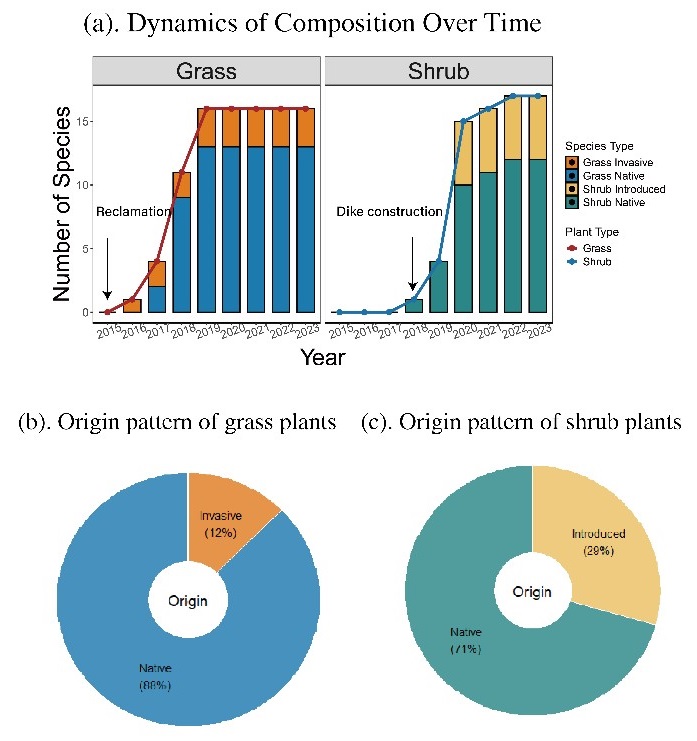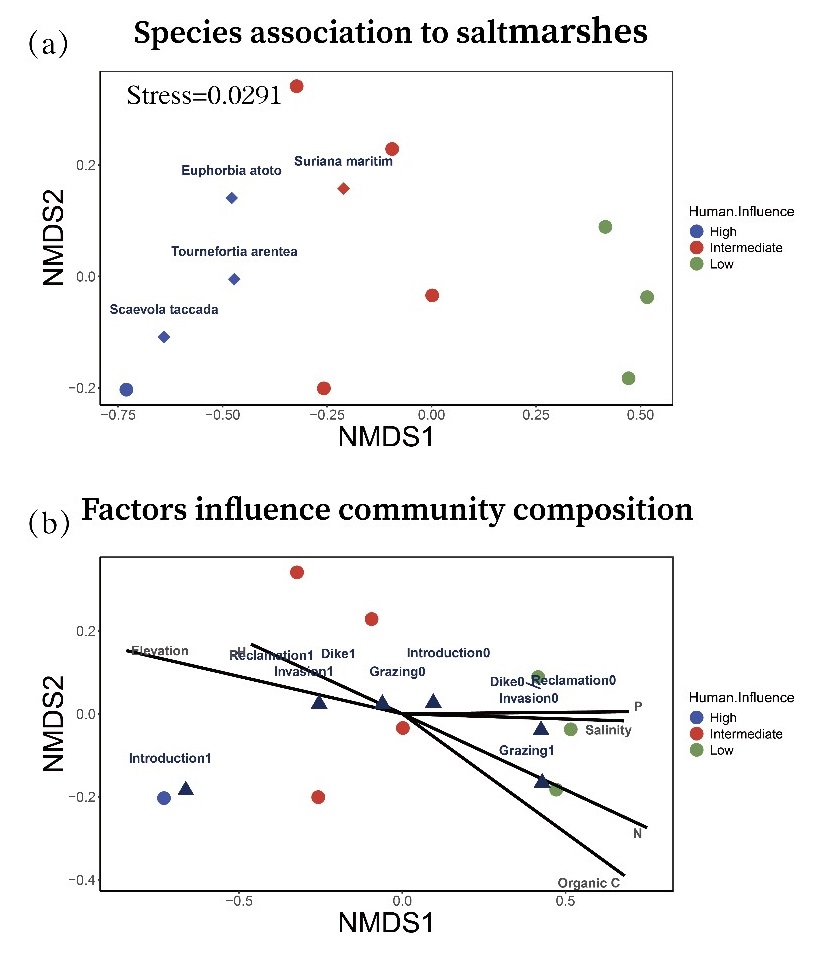
Newsroom
Researchers from the South China Botanical Garden of the Chinese Academy of Sciences have discovered human activities are key to kickstarting, speeding saltmarsh succession in South China Sea coral islands.
In 2023, the research team discovered a near-natural saltmarsh ecosystem in a reclaimed tropical coral island region of the South China Sea. This finding represents a significant shift from artificial intervention towards natural succession, utilizing an "eco-restoration strategy that integrates nature-based learning and human facilitation" in these island environments. The team has conducted in-depth studies on this phenomenon.
Saltmarshes are considered a classic model for primary ecological succession; however, the mechanisms behind their initiation and development—especially their responses to human activities—are still not well understood.
After the land reclamation, the pioneer grass species Tridax procumbens quickly colonized the area within a year. At the same time, seeds brought in by the sea, birds, and wind began to disperse, leading to a transition from grass to shrub vegetation and revealing a unique trajectory of species establishment and progression.
Further research compared the structures of plant communities in tropical coral island saltmarshes that experienced varying levels of human influence while analyzing the environmental factors and human activities that shape community composition. The researchers found that reclamation projects, combined with biological dispersal, promoted the early establishment of pioneer grasses, thereby kickstarting primary saltmarsh succession. Additionally, the construction of dikes and the introduction of stress-tolerant shrub species likely accelerated the transition to shrub-dominated communities.
These findings highlight the crucial role of human activities in both initiating and speeding up primary saltmarsh succession. Such insights are essential for developing effective restoration and land management strategies in tropical coral saltmarsh ecosystems, the researchers noted.
The study was recently published in the journal Ecological Solutions and Evidence and was funded by sources including the National Key R&D Program and the National Natural Science Foundation of China-Guangdong Joint Fund.

A near-natural saltmarsh ecosystem on a tropical coral island. (Imaged by YIN Deyi et al)

Succession and plant origins in the tropical coral island saltmarsh. (Imaged by YIN Deyi et al)

Vegetation in saltmarshes under varying levels of human influence. (Imaged by YIN Deyi et al)
